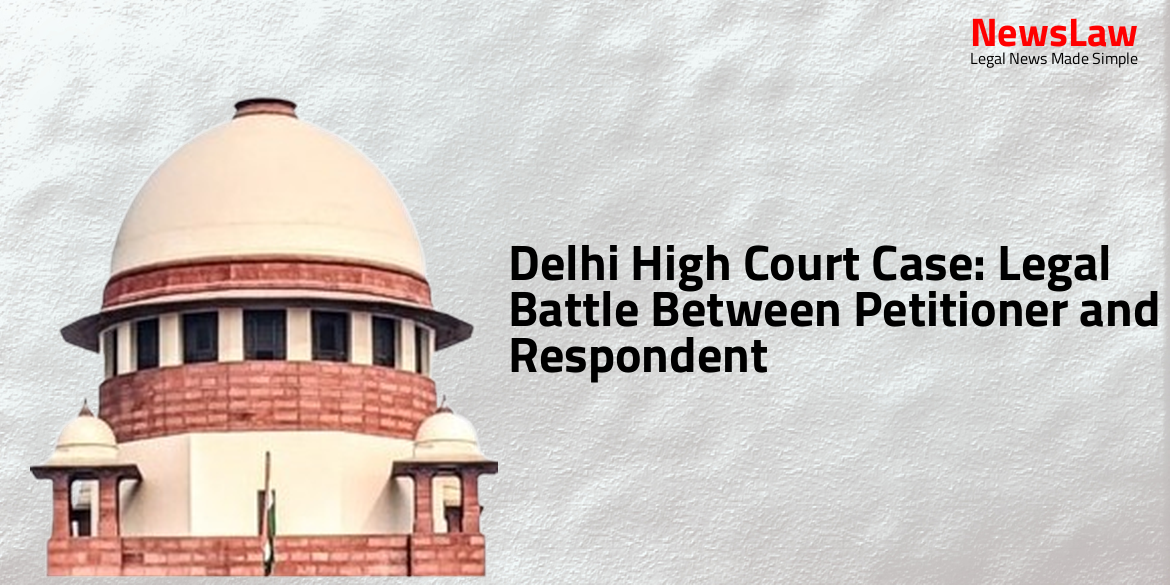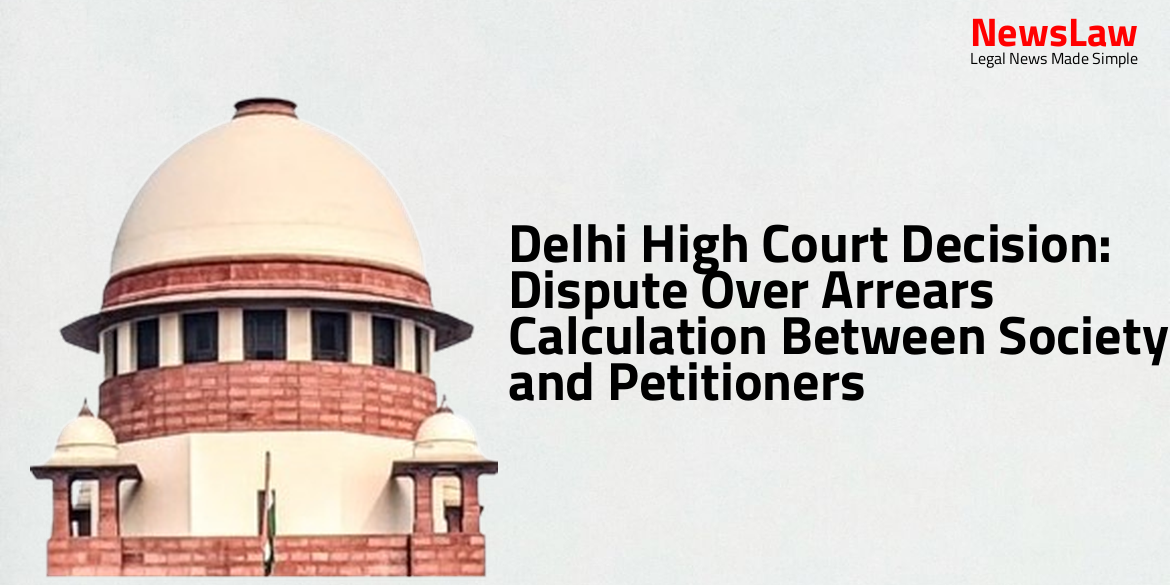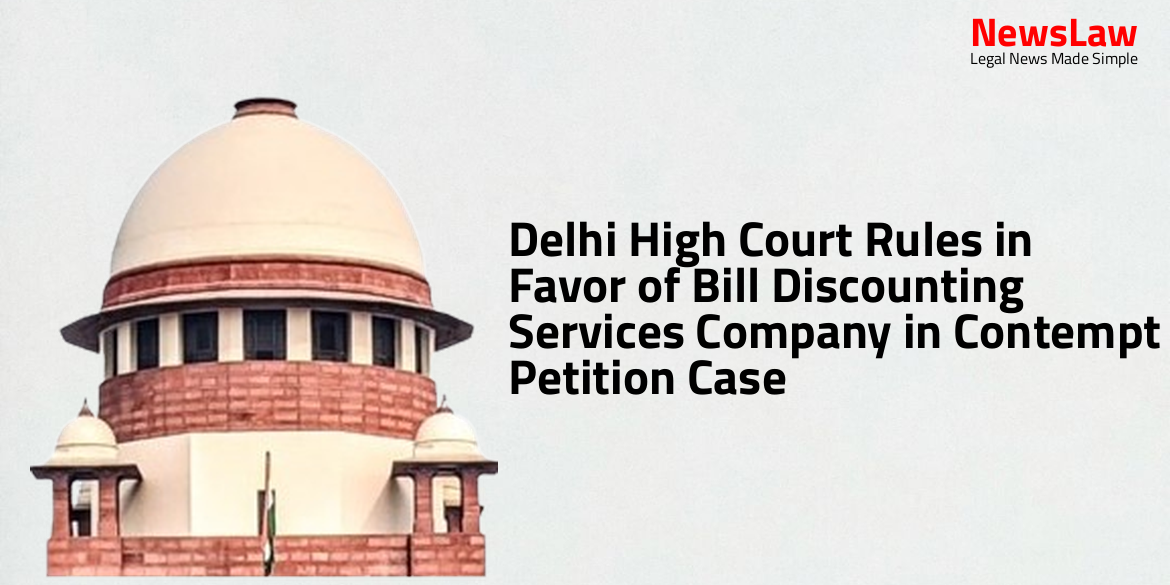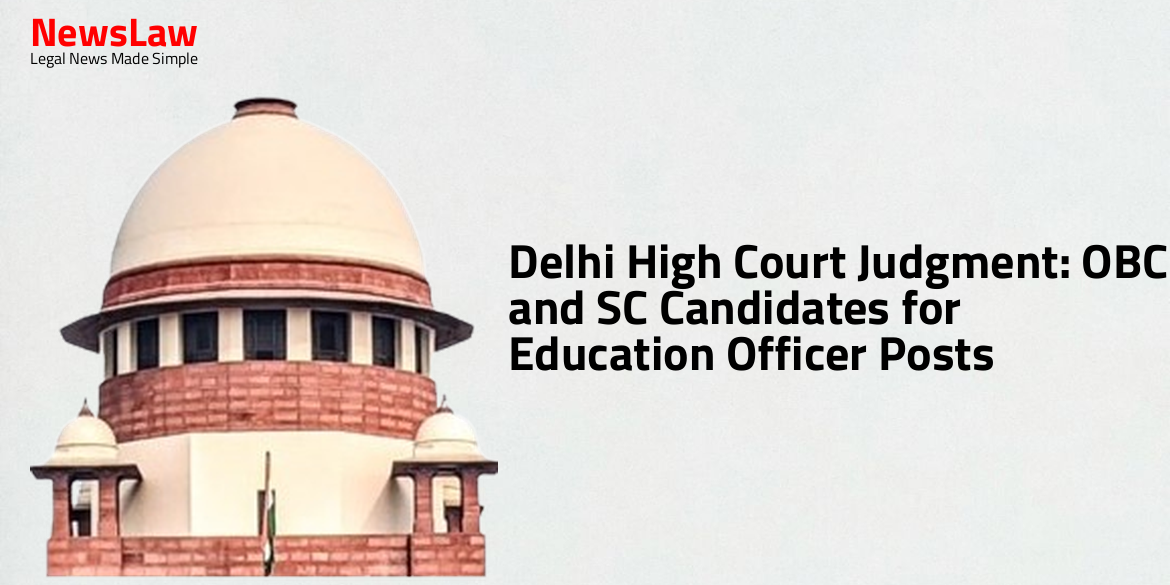In a recent ruling by the Delhi High Court, a complex legal dispute emerged between the petitioner and respondent. The judgement delves into the intricacies of promises made, relationships formed, and the impact of societal pressures. Follow along for a detailed account of this case involving the petitioner and respondent.
Facts
- Petitioner met the respondent through Facebook in May/June 2018.
- Petitioner’s marriage was initially fixed but later canceled in October 2021.
- Respondent persistently contacted the petitioner and even made promises of marriage.
- The petitioner filed a petition against the respondent due to the broken promises and subsequent lack of contact.
- Respondent informed petitioner about his work in modeling in Mumbai.
- Respondent was discharged by the court in a case registered under Section 376 of IPC.
- Petitioner refused respondent’s insistence on meeting in a hotel on her birthday.
Arguments
- Petitioner accused Respondent of promising marriage and establishing a physical relationship based on false promises.
- Petitioner claimed that Respondent’s family tried to pressure her to drop the complaint or face societal defamation.
- The Trial Court discharged Respondent without waiting for the report of Call Data Records (CDRs).
- Petitioner alleged that Respondent used financial and muscle power to influence her.
- Respondent, through his brother, had Petitioner sign a settlement agreement to withdraw the complaint in exchange for money.
- Petitioner submits that respondent no.2 was denied bail on the same grounds
- Petitioner did not receive any amount as per the MoU
- Petitioner’s statement was recorded under Section 164 of the Cr.P.C. based on false pretenses
Analysis
- The Court is not to act as a mere post office or a mouthpiece of the prosecution at the stage of framing of charge.
- The Court must consider broad probabilities of the case, the total effect of the evidence and documents, any basic infirmity in the case, and other relevant material.
- The primary consideration at the stage of framing of charge is the existence of a prima-facie case; the probative value of materials on record need not be extensively examined.
- The petitioner’s admission of entering into a MoU agreeing to quash the FIR raises questions about the authenticity of her claims.
- The court found that the petitioner, a mature 34-year-old, engaging in a relationship with the respondent without coercion or force, impacts the case’s proceedings.
- The Court emphasized the importance of not easily dismissing documents and statements presented in the case, even if there are claims of coercion from family members.
- The emphasis was on forming a presumptive opinion on the factual elements of the alleged offence during the framing of charges.
- Judicial mind must be applied at the stage of framing of charge/discharge
- Examination of evidence to determine if a case has been made out by the prosecution
- No need to delve into the defense of the accused at the discharge stage
- Trial judge to focus on whether the grounds are sufficient to proceed against the accused based on charge sheet material
- Reference to Supreme Court judgments in P.Vijayan v. State of Kerala & Anr. (2010) 2 SCC 398 and State of Rajasthan v. Ashok Kumar Kashyap (2021) 11 SCC 191
- Consideration of evidence recorded or collected by the investigating agency for framing a charge
- Prima facie suspicious circumstances against the accused as sufficient for framing a charge
- Evaluation at the stage of framing of charge is to test the existence of a prima-facie case
- Revisional jurisdiction should be used with caution and the court does not act as an appellate court.
- The purpose of revisional court is to correct decisions that are perverse, unreasonable, or based on no material.
- The finding in question was not deemed perverse or unreasonable.
- It is important to ensure that judicial discretion is not arbitrarily or capriciously exercised.
Decision
- The case is dismissed as no strong case has been presented.
- The present petition lacks merit based on the findings of the judge.
- No specific case or argument has been made to justify the petition.
Case Title: S Vs. THE STATE OF NCT OF DELHI & ANR. (2024:DHC:3737)
Case Number: CRL.REV.P.-606/2024



